Neymar Junior has become the most expensive player in the history of football following his transfer to French club PSG from FC Barcelona in 2017, but exactly how expensive that move was has never been fully detailed. PSG bought the Brazilian on August 3rd 21017, in a transaction that saw the French club settle the huge sum of his buyout clause amounting to 222 million euros.
But PSG also had to pay each of his agents – his father Neymar Senior and Israeli agent Pini Zahavi – a commission sum of 10.7 million euros, and another 8.7 million euros to the club which trained him in his early years, bringing the total price of his transfer to a staggering 252 million euros.
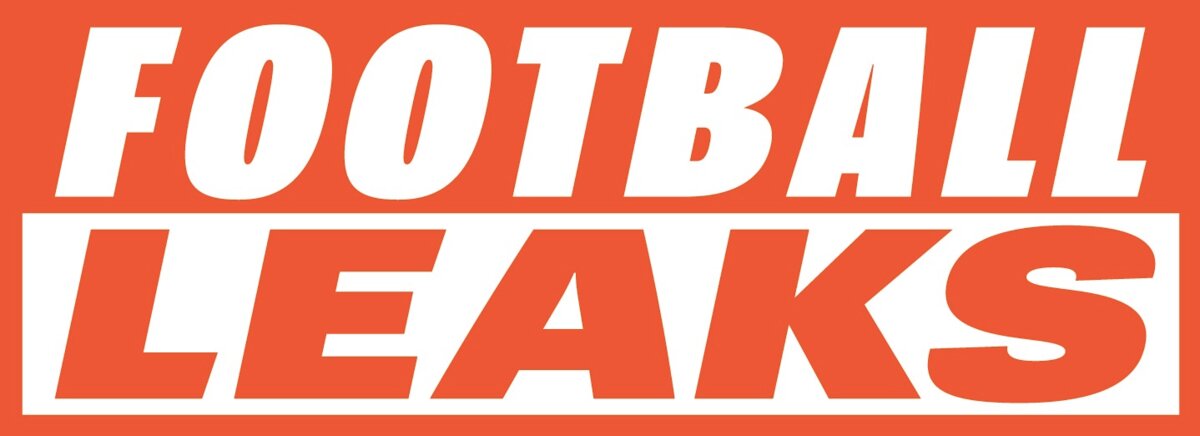
Enlargement : Illustration 1

Documents obtained by German news magazine Der Spiegel, gathered under the project Football Leaks, (see more on the source here) and analysed by Mediapart and its partners in the EIC, a consortium of European media, lift the lid on the background to the transfer, which included a tax-deducted salary, secret financing by Qatar, high pressure negotiating tactics and high drama with the Spanish football league. The Football Leaks documents notably reveal how, shortly before the deal was signed, Neymar’s entourage misled FC Barcelona in an attempt to receive a bonus of 64 million euros, a move which came close to causing the collapse of the transfer.
Within PSG, the operation to bring Neymar to Paris was codenamed “Gold”. It was driven by the ambitions and frustrations of the Emir of Qatar, owner of PSG and who disposes of seemingly unlimited funds. The target was a young and highly talented footballer with a penchant for partying and who is hardheaded in his business affairs, placing his confidence only in his close entourage.
Those who follow him everywhere include his father who is also his agent for business dealings, a close circle of friends, and even his own physiotherapist and sporting coach. The latter caused considerable concern for PSG, who suspected Neymar of employing several people in France without work permits.
Neither Neymar nor his father Neymar senior responded to our requests for an interview.

Enlargement : Illustration 2

The Football Leaks documents also demonstrate how, contrary to the club’s upbeat statements, Neymar represents a financial bottomless pit for PSG. During the negotiations, he gave no ground concerning his lucrative image rights. Over a period of five years, the 25-year-old will cost PSG a total of 528 million euros (more than three times the annual budget of PSG’s traditional rival, l’Olympique de Marseille), and yet until now he has brought the Paris club little in revenue. While PSG had at first believed it could significantly increase payments from its sponsors Nike and Emirates, it was to be sharply disappointed. Mediapart reveals here the seven sequences of the most expensive transfer ever in the history of football.
- A yearly 30 million euros free of tax and charges
Everything began with the humiliating defeat for PSG in its Champions League tie against Barcelona played at the Catalonian club’s Nou Camp stadium on March 8th 2017. The round of 16 first leg had seen the Paris club win 4-0, but it was to leave the Nou Camp soundly beaten 6-1. The win for Barcelona included two goals scored by Neymar, who also obtained a penalty and whose last-minute pass into the penalty area produced the sixth and decisive goal which saw Barcelona through to the next stage of the competition. The result left the eliminated PSG a target of mockery in European football. “I am very sad […] this match is the proof that PSG still has a lot to learn,” wrote a member of PSG’s management in a personal email of “congratulations” to his counterpart at Barcelona.

Enlargement : Illustration 3

The Emir of Qatar, meanwhile, was furious. Despite the 1.8 billion euros he had poured into PSG over the previous six years, the club had never succeeded in reaching further than the quarter finals of the Champions League. He wanted a superstar for the team, a player of world renown who could lead the club to victory and increase its revenues. Out of the top five players worldwide, only Neymar might be available during the transfer window of that summer 2017.
But Barcelona believed it had done everything to secure the player. In June 2016, Neymar prolonged his contract with the Catalan side for another five years, and the new contract included a bonus of 64.4 million euros, of which 43.7 million euros was payable one year later. On July 1st 2017, the Brazilian signed a new contract that was to keep him at the club until 2022. A buyout clause was included by which if another club was to try and lure him, it would need to pay up 222 million euros as part of a buyout clause. For Barcelona, that enormous sum appeared too prohibitive for any club to meet.
However, negotiations began on July 19th 2017, and they would only be finalised on August 1st, the eve of his transfer to Paris. He had secured a contract with a net salary – one that was free of social welfare contributions and income tax, all of which were paid for by PSG.
The Paris club at first proposed a salary of 25 million euros per year, but Neymar would succeed in obtaining 30 million euros per year, free, for him, of social charges and tax. That represented a gross annual salary, when including social charges and income tax, of 54.7 million euros – which was the cost for PSG. The sum was the equivalent of the yearly budgets of France’s Ligue 1 clubs Toulouse or Montpellier.
On top of that was included collective bonuses for winning matches (which last year amounted to 300,000 euros). If ever PSG was to finish first in the Ligue 1 at the end of the season, and won the two cup finals in French football and also the Champions League, Neymar’s net salary would rise to 30.8 million euros.
The deal saw his salary increase almost twofold on the yearly 16 million euros he had been earning at Barcelona, and was three times more than that of the second-highest paid footballer in France’s Ligue 1, namely his PSG teammate Kylian Mbappé. In more simple terms, he was to earn at PSG 2.5 million euros per month – or 3,424 euros every hour of the year.
Like all players at PSG, Neymar has a fixed base salary which is topped up with bonuses. In his case, he earns a yearly 25.5 million euros and an “ethical bonus” of 4.5 million euros which depends on him meeting a number of conditions (without such a clause it would be impossible, under French law, to impose such conditions). These include “punctuality”, demonstrating “exemplary behaviour on the field”, and “politeness, kindness and availability towards supporters, which notably includes the duty to greet and thank supporters before and after each match”.
More surprising is that Neymar asked for a clause in the list of conditions for meeting the payment of the “ethical bonus”, which was “respect of tax regulations”, be removed from his contract. But on that point PSG remained firm. Neymar and his father had previously been handed a 1.2 million-euro fine in Brazil for tax fraud, which involved tax evasion on payments connected to his transfer to Barcelona in 2013. Neither Neymar nor his father responded to questions about this, nor any other subject, which were submitted to them by the EIC.
- A hard-dealing sandwich man
If PSG codenamed Neymar as “Gold”, it was not just because of his on-field skills, but also his ability to attract brand sponsors. According to specialist evaluations, Neymar is the third most sponsored player in the world, behind Cristiano Ronaldo and Lionel Messi, with earnings from marketing (on top of his salary) estimated to be worth between 17 million euros and 30 million euros per year. Such contracts are firmly managed by his father, Neymar Senior, through his Brazilian company Neymar Sport Marketing.
Something of a sandwich man, Neymar has contracts with 30 different sponsors, ranging from sports apparel and accessories firm Nike to Beats headgear, and including energy drink brand Red Bull, Replay jeans, and Gillette razors. His contract with the Police glasses brand earns him a yearly 930,000 euros, according to documents obtained from Football Leaks. In 2015, a deal with snacks and crisps brand Sabritas brought him 869,000 euros for use of his image in Mexico alone.
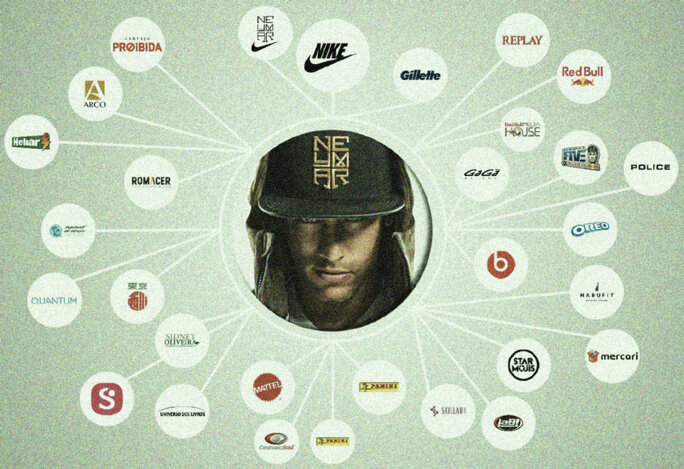
Enlargement : Illustration 4

The most extravagant deal is most certainly that with Japanese car manufacturer Toyota which, in 2014, paid Neymar 550,000 euros for a video advert broadcast only in Thailand. The advert involved four hours of recording in Barcelona, thus earning the player the equivalent of 138,000 euros per hour. Toyota also paid for the accommodation in a five-star Barcelona hotel for three Neymar Sport Marketing employees, and their flight travel to Spain from Sao Paulo in business class. Added to this, the Japanese firm also offered Neymar one of its “most top-of-the-range” cars for use in Barcelona, and one of its Hilux pickup trucks, delivered in Brazil.
Neymar Snr reportedly ready 'to make war'
PSG was of course keen to benefit from Neymar’s sponsorship value, but obtained little. It had hoped to be able, and at no extra cost, to commercialise adverts with its sponsors in which Neymar would appear with just two other PSG players, instead of the standard four normally included in such deals. Fewer players would give more prominence to Neymar, and would have been of higher value to sponsors who could be expected to pay more. But that idea was turned down on the insistence that such ads would include the usual four teammates.
The club had no rights for sponsorship deals which involved only Neymar’s image, even when he appears wearing the PSG kit. To be included, the club were required to pay for the privilege. Those among the club’s sponsors who wanted to include Neymar in their marketing campaigns were not automatically entitled to do so – he agreed only not to “unreasonably nor systematically” oppose any such proposition.
Furthermore, PSG were unable to reach an agreement that Neymar would not enter into deals with sponsors who were rivals of the club’s sponsors. The club’s sponsors only have the right to supplant new sponsorship offers if they meet the financial conditions offered to the player by their rivals.
- Agent commissions and taxing moments
The most difficult negotiations for Neymar’s transfer to PSG involved not the player’s contract, but the deals with his agents. These were two men, his father Neymar Senior, who manages the player’s business interests with an iron fist, and the prominent Israeli football agent Pini Zahahi, through whom PSG were able to enter into close contact with the Neymar clan. Each of them was to receive a commission payment of 10.7 million euros.

Enlargement : Illustration 5
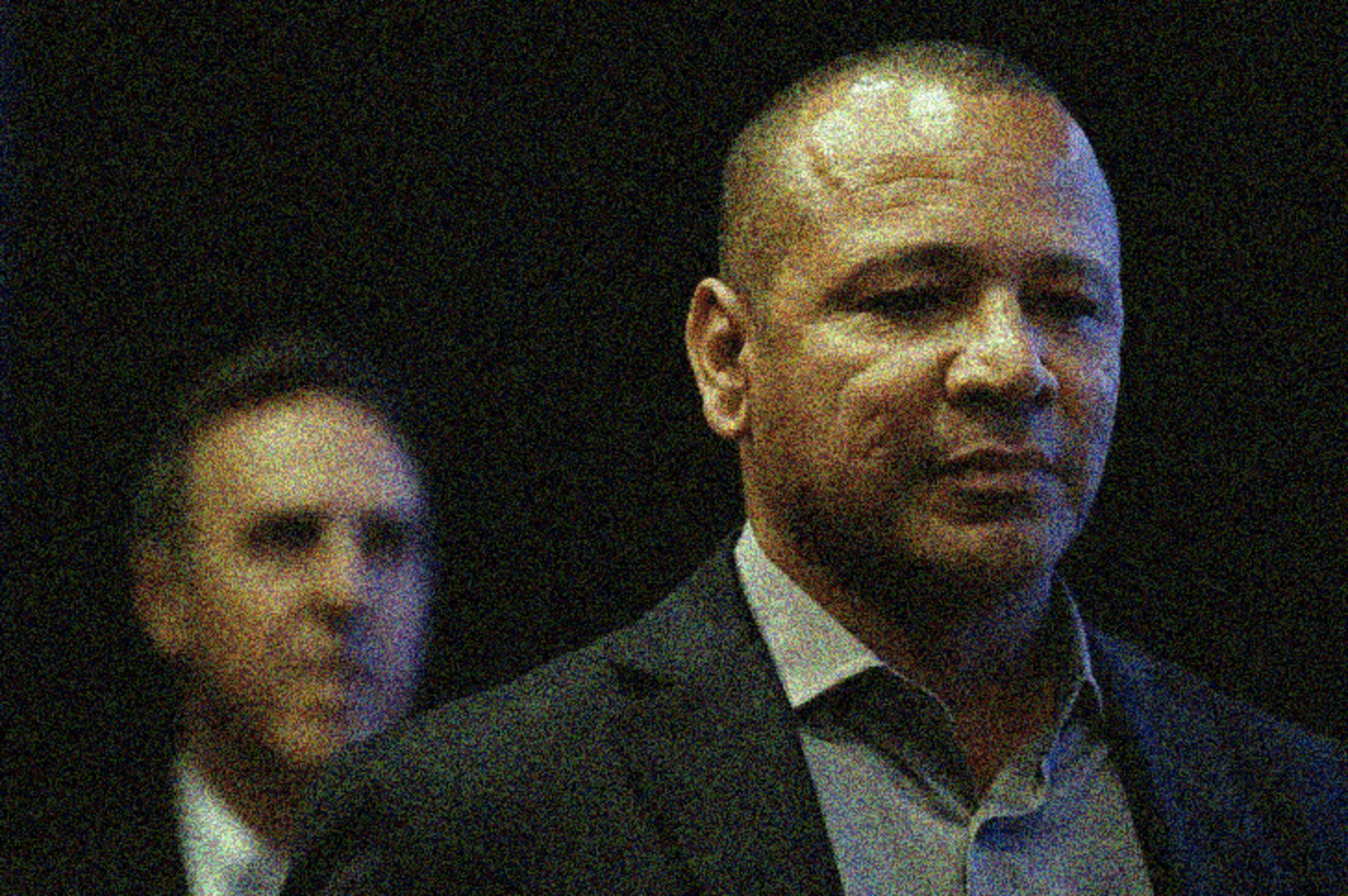
Their contracts, revealed by Football Leaks, offer an insight into the roles played by intermediaries in the business world of football. In the case of Zahavi, he was to receive a payment of 1.5 million euros, subsequently rising to a yearly 2 million euros, over a period of five years, with each yearly payment conditional on Neymar remaining with the club. In short, the staggered payments are an incentive for Zahavi to make sure the Brazilian star remains with the club.
Neymar Senior received payment for convincing his son to join PSG. He insisted on receiving 6 million euros as of January 2018, and three million euros the following year. Which would mean that if ever his son left PSG during the summer transfer window in 2019, he would have by then already received most of the agreed commission.
But in the last few days before the transfer deal was concluded, the sensitive issue of tax became an obstacle in the negotiations. In December 2016, our first series of reports based on information from Football Leaks revealed how football agents funnelled commissions into tax havens (see here and here).
To combat tax evasion, French law requires that if an agent is a resident for tax purposes in a country outside France, they must demonstrate that they pay a normal rate of tax in that country. If they cannot do so, then the club paying the commissions must hand over to the French tax authorities 33.3% of the total to be paid, deducted at source. In the case of the Neymar transfer to PSG, this would mean that Neymar Senior and Pini Zahavi would see their payments cut by 3.5 million euros each.
The subject was a delicate one. While it threatened to upset the Neymar clan just days before the hoped-for conclusion of the most expensive transfer in the history of football, the club’s legal obligations were at stake. If it was to avoid paying a third of the commissions to the French tax authorities, it must prove to them that the agents were duly subject to tax in their own countries.
While the uncooperative attitude of Pini Zahavi caused concern for PSG, the club was also worried about the situation with Neymar senior.
On July 1st 2017, when a PSG delegation was preparing to fly to Barcelona to negotiate the transfer deal, Neymar’s father asked for the clause in the contract stipulating he must prove his residence for tax purposes to be deleted. PSG refused to do so.
But the club also had problems concerning documents supplied by Neymar Senior, in which he declared receiving a personal income in 2016 of about 3,500 euros per month. The sum represented a surprisingly modest income for the father and agent of one of the world’s highest-paid footballers. Documents from Football Leaks disclose that in 2016, the Brazilian-registered companies controlled by Neymar Senior received 6.5 million euros from Barcelona football club.
Contacted on this subject by the EIC, Neymar Senior declined to be interviewed.
On PSG’s request, Neymar Senior asked the Brazilian tax authorities for a certificate showing that he was a fiscal resident in the country. But the document indicates that he was to be taxed at source on his commission in France, which would imply that he was not liable to tax in Brazil, whereas the apparent reason for asking for the certificate was to demonstrate that he would pay his taxes in the South American country in order to escape taxation at source in France.
The agent agreements were finally signed on August 2nd, on the eve of the transfer. The EIC was unable to establish whether Neymar Senior was taxed on his first commission payment of 6 million euros in January 2018, nor whether PSG removed 33.3% of the payment in compliance with the French tax authorities’ rules.
Contacted, PSG refused to comment on the final outcome. It did, however, insist that if agents who are not domiciled in a European Union member state do not provide “the pertinent documentation about their tax status”, the club pays “the applicable potential deductions at source in accordance with French tax laws”.
- Neymar Senior’s game of bluff
In parallel with the issue of tax declarations, an extraordinary game of bluff came close to causing the transfer to collapse on July 31st 2017. A PSG delegation led by the club’s managing director Jean-Claude Blanc was due to leave the following day for Barcelona to finalise and sign the contracts with the player and his agents, and to handover the payment of 222 million euros.
However, Neymar had still not officially announced his departure from FC Barcelona, for before leaving he wanted to make sure he was paid a bonus payment promised by the Catalan club. This was a bonus sum of 64 million euros agreed when he prolonged his contract exactly one year earlier. He had been paid part of it, 21 million euros, but their remained a further 43 million euros that FC Barcelona was committed to pay him by midnight on July 30th 2017 at the latest.

Enlargement : Illustration 6
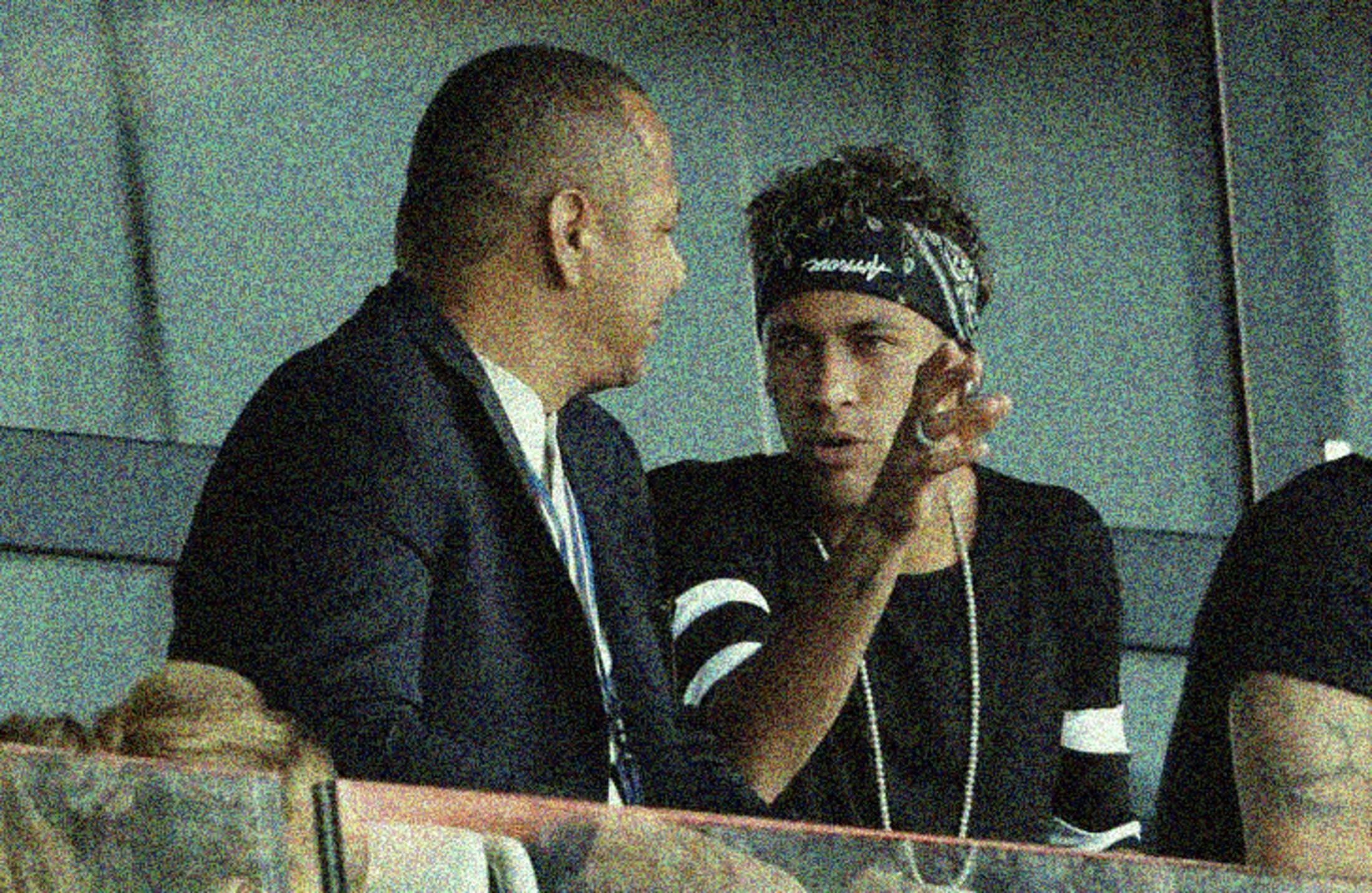
On the morning of July 31st, the money transfer had still not been made. According to a confidential email, FC Barcelona’s president Josep Bartomeu wanted to “avoid the ridicule” of paying the remaining amount of a bonus for the prolonging of a contract of a player who the media had repeatedly reported was on the point of leaving the club. The decision taken, a fax was about to be sent to Neymar informing him of this.
But at 6.44pm, Barcelona’s then director of football Raul Sanllehi wrote to Josep Bartomeu, managing director Oscar Grau, and also several other of the club’s directors. Taking great precaution and with an apparent embarrassment (“I don’t want to bother anyone”, he wrote), Sanllehi suggested to his bosses that the fax should not be sent to Neymar, but instead a meeting should be organised to attempt to keep him with the club.
Sanllehi had just left the residence in Spain of Neymar Senior, who he had known for several years, and he was apparently convinced by what the player’s father had told him. “For weeks, he has shown that he has worked to convince his son not to make the mistake of going to PSG,” he wrote, unaware that Neymar Senior had already negotiated with PSG a commission of 10.7 million euros. “You will think me naïve, but I don’t care because I have rubbed shoulders with this man for hours and hours and I understand him well enough to know when he’s bluffing and when he is telling the truth […] I am absolutely convinced, he has proved it to me, that he’s on our side.”
A demonstration of this, added Senllehi, was that during their meeting together, Neymar Senior had “never asked for more money (for the first time in history)”.
But, Senllehi wrote, he was an “angry man, with a great desire to make war”. Senllehi said he was convinced that Neymar Senior had changed his position just “2-3 days” earlier, when the media reported that FC Barcelona had envisaged not paying the 43 million euros outstanding on the bonus promised to his son. “If he has felt betrayed, he thinks that the club had leaked that to put pressure on him,” argued Senllehi.
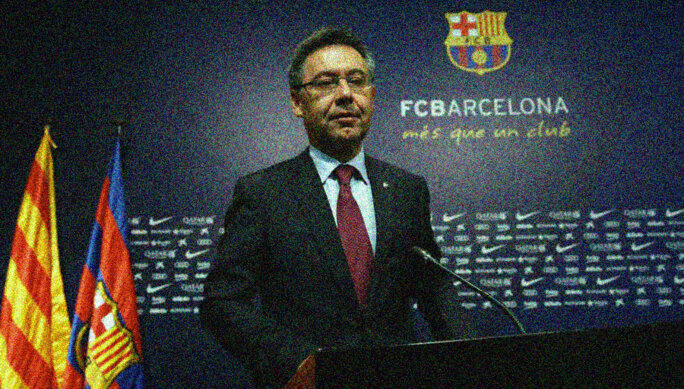
Enlargement : Illustration 7

Neymar Senior had demanded that the bonus be paid the same day, otherwise he would seek a legal ruling overturning his son’s contract with the club. He was quoted as having said: “And then you won’t see trace of the 222 million, and we’ll see, when he’ll be free, where [Neymar] will decide to play.”
Raul Senllehi’s email was emotional: “If there is a chance, even minute, that the player stays,” he wrote, a refusal to pay the 43 million euros “would kill it”.
Almost 550,000 euros for star's arrival celebrations
Nineteen minutes later, at 7.05pm, Barcelona board member Javier Bordas replied to Senllehi and the other management figures who were sent his email. “I understand Raul because I dined with the father and I had the same impression,” he wrote, adding that Neymar Senior had warned him that things “could be worse” for Barcelona if his son joined its arch rival Real Madrid. Bordas said he believed, like Senllehi, that Barcelona could be legally required to pay the remainder of the bonus.
But the FC Barcelona president remained firm and informed Neymar that the 43 million euros had been deposited with a solicitor and will be released to him only if the player certifies that he will remain with the club (see document immediately below). That confirmation would never be given.
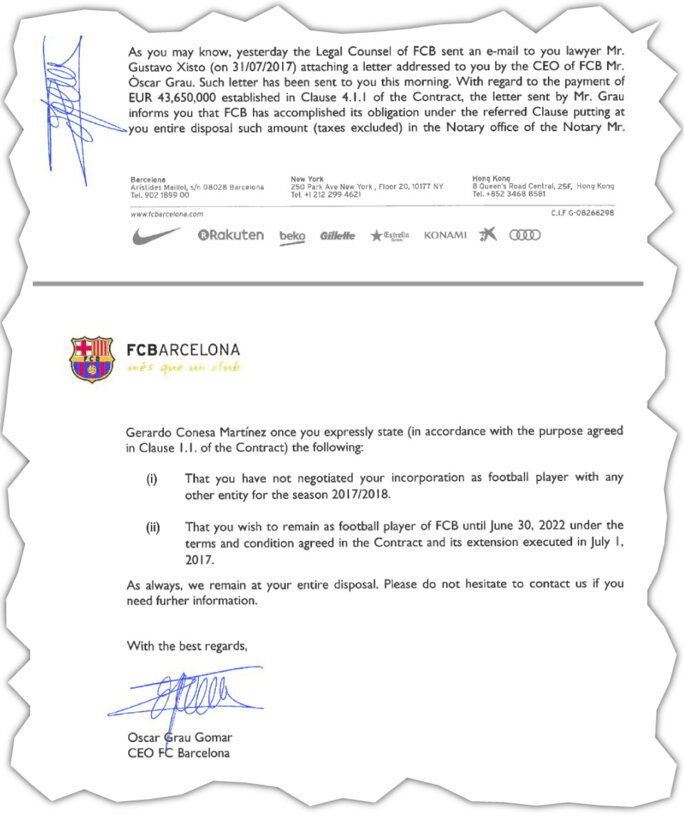
Enlargement : Illustration 8

PSG had learnt of Neymar Senior’s anger and was deeply worried that if he launched legal action the transfer of his son to Paris could collapse – just 48 hours before it was due to be concluded. Pini Zahavi, whose nickname was “Mr Fix It”, was given the task of calming Neymar Senior. At 1.30am on August 1st, he wrote to PSG’s Jean-Claude Blanc: “The good news is that the father will not take legal action against Barca now, and we can pursue with our plan,” he announced.
That same day, Blanc and his delegation flew to Barcelona, and in the late evening Neymar signed his contract with PSG.
Since then, a legal battle continues between Neymar and Barcelona. While the player is still demanding payment of the 43 million euros due on his bonus, FC Barcelona are demanding that the player pays the club 73 million euros (including the frozen sums), representing a total refund of the bonuses that were offered to him for prolonging his contract since he joined the Catalan side in 2013.
Contacted by the EIC, FC Barcelona refused to offer any comment on the issue.
- Qatar’s money spinning upsets Spain’s Liga boss
On August 2nd 2017, things were going well for the PSG delegation in Barcelona. But the club itself lacked the funds to meet the huge cost of the transfer. Information gained by the EIC suggests it was Qatar Sport Investment (QSI), owner of the club, which paid the entire amount. Shortly before the operation, QSI, which is directly controlled by the Qatari finance ministry, organised a transfer of 233,684,000 euros for “cash need”.
Questioned by the EIC, PSG managing director Jean-Claude Blanc commented: “In all companies there are current account advances [editor’s note: equivalent to a loan] by shareholders to finance investments.”
Normally, however, shareholders seek a refund of their investment. But four months after the transfer, QSI abandoned, through an increase in the club’s capital, 316 million euros of credit for PSG, much more than the cost of bringing Neymar to the club. The player, it appears, was a present from the Emir of Qatar.
Javier Tebas, president of the Spanish football league, La Liga, and a long-time adversary of PSG, announced on July 30th 2017 that he would lodge a complaint with UEFA for breach of its financial fair play rules if the transfer of Neymar to Paris was concluded. On August 3rd, he refused to accept the payment of 222 million euros which under formal regulations must be deposited first with La Liga. In media interviews, Tebas denounced PSG for "cheating economically", of inventing “fictitious” state-linked sponsors, and called for the club to be punished.
In a statement to the EIC, PSG commented: “Mr Tebas decided to launch a public campaign against the club [PSG] last season and does the same with Italian clubs. We consider that he would do better to concentrate himself on the manner in which Spanish football has been so competitive today.” The latter was apparently a veiled reference to the vast debts of Real Madrid and the writing off of some of them as consented by the Spanish state.
Because Tebas in fact had no right to refuse the 222 million-euro payment his move barely held up the transfer. On August 4th, he wrote an angry missive to PSG president Nasser Al-Khelaifi, accusing him of conflict of interest – Al-Khelaifi is also head of the TV sports channel network beIN Sports – joint positions that Tebas considered “incompatible”. The pay-channel broadcaster holds a part of the TV rights to La Liga matches, and Tebas, referring to the removal of one of its star players, told him: “Nasser, La Liga cannot have, nor want to have, a partner that damages its product.”
Nasser Al-Khelaifi was furious at the comments made by Tebas and ordered the preparation of a reply to the Liga president be. But he finally decided that the response should be moderate in tone, so as not to further upset relations between beIN Sports and La Liga. By October 2017, the letter had still not been sent.
On August 22nd 2017, Tebas lodged his complaint against PSG with UEFA, accusing the French club of violation of the European football associations’ ruling body’s financial fair play rules, and ten days later UEFA opened its investigation into the matter. The probe was opened against a backdrop of not only the pressure of La Liga, but also the anger against PSG of other enemies, including German club Bayern Munich, although UEFA denies that this contributed to its decision to investigate the French club. The investigation is ongoing, and threatens potentially serious consequences for PSG.
Earlier that month, PSG president Nasser Al Khelaifi had demanded a grand public show of welcome for Neymar on his arrival in Paris on August 4th, with two days of celebrations. The signing ceremony was surrounded in great pomp, with the Brazilian star presented at the club’s ground, the Parc des Princes, and a photo call in front of the Eiffel Tower which was illuminated for the occasion in PSG’s colours and equipped with a giant screen displaying the message “Welcome Neymar JR”.
Al-Khelaifi had addressed the club’s marketing teams on August 1st: “I want him in front of the Eiffel Tower with his image and the club logo. We have made a massive investment in him and I will never accept that anyone does not do what I have asked.”
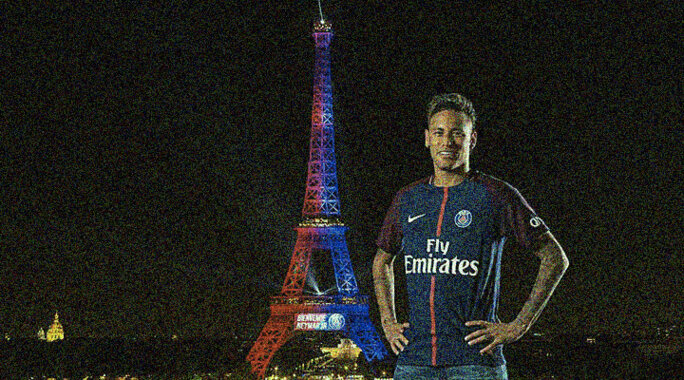
Enlargement : Illustration 9

The PSG president would get what he asked for. Documents from Football Leaks reveal that the two days marking Neymar’s arrival in Paris cost almost 550,000 euros, including 260,000 euros for the events at the Eiffel Tower and 63,000 euros on the organisation of security for the star during his first week in the French capital.

Enlargement : Illustration 10

The Brazilian is known for his partying, and his travels are often accompanied by a group of friends who, it is rumoured, he provides for. For his arrival in Paris, PSG arranged for accommodation for Neymar, family members and close entourage at the Qatari-owned Paris luxury hotel Le Royal Monceau, and for ten of his friends in a five-star hotel on the Champs-Elysées, at a total cost of 5,650 euros.
- Suspicions over undeclared work
Neymar not only travels with an entourage of friends, he is also accompanied by expert sports and medical staff in who he trusts above others. He even attempted, in vain, to have his working contract amended so that it included the stipulation that the opinion of his personal doctor should override that of PSG’s medical staff.
However, he did succeed in obtaining access for his physiotherapist and his “analyst of sporting performance” to the PSG training camp, the Camp des Loges. At the end of October 2017, the two Brazilian employees were to cause concern for the club. It had committed itself in writing to helping them with any necessary administrative procedures for their move to France, but the Neymar clan had made no move to obtain the necessary documents.
PSG suspected that they had neither French residence permits nor working permits, and even that they had no signed working contract with Neymar. What was certain was that they had not produced any such documents to the club. The club also suspected that the player had rented apartments in Paris for other people working for him, and it had no idea if they had been officially notified to the competent administrative authorities.
The affair was highly sensitive. The club’s legal advisors believed there was a high risk that the physiotherapist and sporting performance analyst could become the object of a legal case against both Neymar and the club for engaging in undeclared employment.
The club was at risk because the two Brazilians worked on its premises.
Brands refuse hike in sponsorship fees
On October 24th 2017 a crisis meeting was held at the club with Altamiro Bezerra, a Neymar aide who managed the finances and business activities of the player and his entourage. He demanded that PSG officially hire the physiotherapist and sporting performance analyst. PSG refused, arguing correctly that their employment by the club was not envisaged in the contract signed with the player. However, Bezerra insisted that PSG managing director Jean-Claude Blanc and the club’s sporting director, Antero Henrique, had both promised to hire the pair. Angry, Bezerra left the meeting just shortly after it had begun, demanding to deal directly with Blanc or Henrique.
The club’s legal department, concerned at the legal implications for PSG of the two Neymar aides, suggested that Neymar should be reminded of his obligations under French law. It was proposed that an email should be sent to Bezzera asking him to provide the work contracts of the two Brazilians employed by Neymar, and also their permits for residence and work in France.
The documents obtained from Football Leaks do not reveal how the exchanges ended, but the club’s efforts to put the situation in order was finally fruitful. Contacted by the EIC, PSG did not refute the information in our possession about the case, but declared, without mention of dates, that “Neymar’s physiotherapist and sporting performance analyst have obtained a residence permit, a work permit and professional certification allowing them to work in France”.
- Delusions of grandeur and filling a financial hole
With the transfers to PSG of Neymar and Kylian Mbappé, the club invested a total of 432 million euros in the players in August 2017 alone, a spree never before witnessed in football. In face of an avalanche of hostile comment over the extraordinarily vast funds spent by Qatar, PSG president Nasser Al-Khelaifi took to the stage during the public presentation of Neymar on August 4th 2017 to argue why the transfer was a rational economic investment. “Maybe the transfer appears expensive today, but ass me the question again in two years. […] I am sure that in two years the price for Neymar will have doubles,” he said, underlining the player’s attraction worldwide.
But the euphoria would soon dissipate at the club’s headquarters. According to documents obtained from Football Leaks, paying off of the cost of Neymar’s transfer plus the player’s salary would amount to a total of 528 million euros up until 2022, equivalent to 105 million euros per year. That meant that PSG would have to attract more than 100 million euros in extra revenue each year, or sell players to compensate for the difference. When also taking into account the cost of bringing Kylian Mbappé to the club, that yearly shortfall climbs to 166 million euros.
One year after the transfer, the club is still very far from meeting any such target, even if it has made much in public of the leap in sales of its shirts and kit. According to confidential documents obtained from Football Leaks, the club’s income from sales of by-products rose by more than 50% during the 2017-2018 season, rising from 35 million euros to 55 million euros. But the extra 20 million euros are far from compensating the investment. Similarly, income from ticket sales rose by just 10 million euros.
To hope to secure a return on the purchase of Neymar, the club needed to attract more money from sponsors. As of August 12th 2017, PSG set up a “Neymar commercial task force” in the words of a message sent by the club’s marketing director to Nasser Al-Khelaifi. The aim was to generate extra income of 20 million euros as of the first season, either through new sponsors or an increase in the value of existing sponsorship contracts. However, according to documents from Football Leaks, only 3 million euros in extra income was found, and for good reason: because of the restrictions imposed by Neymar on use of his image it was a difficult task to convince sponsors to pay more than their existing contracts.
Nevertheless, that was what Nasser Al-Khelaifi attempted to do with his two biggest sponsors, Nike and Emirates. Apparently overestimating Neymar’s attraction, he made extraordinarily expensive sponsorship proposals to the two brands, which were firmly turned down.
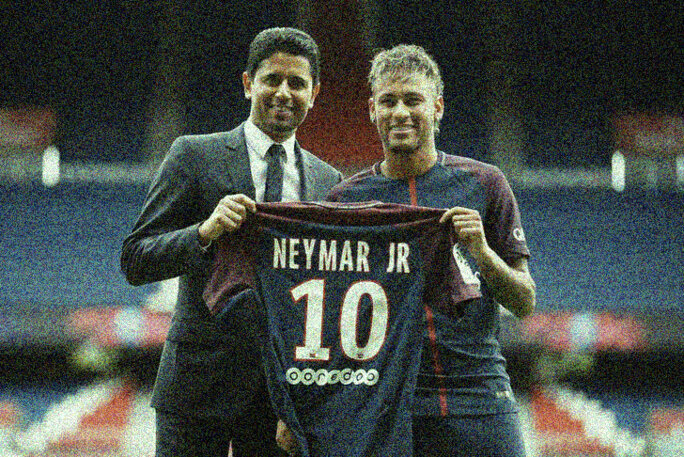
Enlargement : Illustration 12

Nike was in a position of force given that its contract with PSG, which it paid just more than 20 million euros per year, was not due to expire until 2022. In 2016, PSG was unhappy to see that Nike had prolonged its contract with English club Chelsea in a deal worth a yearly 65 million euros, and another with FC Barcelona worth a yearly 150 million euros. At the time PSG asked, in vain, for a payment of 50 million euros per year.
With the arrival of Neymar and Mbappé, who both had individual contracts with Nike, Nasser Al-Khelaifi grew in confidence, and in October 2017 asked Nike for a sponsorship deal worth 100 million euros per year. In its reply, the US-based multinational said such a sum did “not correspond with market value” and suggested that PSG should adopt a “reasonable” approach.
One month later, the Paris club came back with a proposition of a yearly contract for 60 million euros per year, to begin immediately, and which would rise to 100 million euros per year as of 2025. Again, Nike turned down the proposition. But PSG did obtain a compensation of sorts, with a deal to place the logo of Nike’s Jordan Brand (a line of clothing named after basketball star Michael Jordan) on its shirts, which French media speculated was worth up to 15 million euros per year.
The attempts to increase sponsorship payment were totally unsuccessful with Emirates, which pays PSG a yearly 20 million euros, principally to appear on its team shirts. The Emirates contract expires in June 2019, placing PSG in a better bargaining position than with Nike. In mid-august 2017, the club was hopeful of establishing a new deal with the Dubai-based airline. PSG’s marketing director suggested to Nasser Al-Khelaifi that he ask for 60 million euros per year, but the latter decided to ask for 90 million euros per year – which was not far off being five times the value of the existing contract.
Emirates replied on October 16th, in an email addressed to PSG managing director Jean-Claude Blanc. “We think we are very far from what you are proposing at this stage, the gap is too big,” wrote the airline’s marketing director. “I would appreciate a more realistic approach in order that we may have fruitful discussions, otherwise I fear that we will have to completely decline the renewal.” The threatened end to its sponsorship was finally carried out with the announcement on August 3rd this year that it would not renew its contract with the club after the present one expires on June 30th 2019.
Questioned by Mediapart, PSG managing director Jean-Claude Blanc declined to provide details of the extra income the club has succeeded in attracting, although he recognised that the total needed for the offset was not yet achieved. But he insisted that the club’s plans to increase its income were going to plan. “We knew as of the start that by buying Neymar and Mbappé […], we would not be able to generate 150 million more [per year] immediately,” he said. “[…] The gap is such that we cannot fill it in one year, notably on the sponsorship side, because the contracts are ongoing. So there is an obligation, like other clubs in Europe, to generate a profit [from the sales of] players each year.”
Blanc said he was confident about the future. “We will increase ticket sales, sponsorships, merchandising. We will renegotiate the Nike contract, we will renegotiate the shirt contract,” he said. “[…] The revenue curve rises progressively. The TV rights will increase in two years, the Nike contract expires in four years and the Emirates contract this year.”
Four years remain for the club to reach its goal. But there also remains the risk that if it fails, PSG will have to sell some of its best players in order to balance the books and meet the requirements of UEFA’s financial fair play regulations.
-------------------------
- The French version of this report can be found here.
-------------------------------------------------------------------------
If you have information of public interest you would like to pass on to Mediapart for investigation you can contact us at this email address: enquete@mediapart.fr. If you wish to send us documents for our scrutiny via our highly secure platform please go to https://www.frenchleaks.fr/ which is presented in both English and French.
----------------------------------------------------------------------


